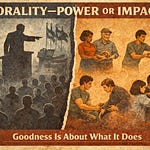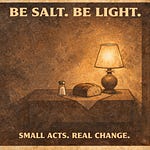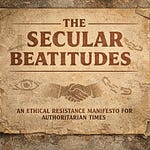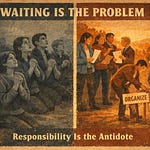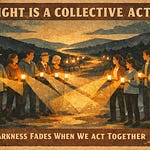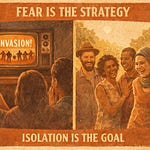What if blind faith isn’t a virtue but a tool for control? The simple truth is that unquestioned belief often gets weaponized, so we can do much better without it!
If you had to pick one word that holds up the entire house of religion, especially Christianity, it’s probably faith. Not compassion, humility, or even obedience (although that one tries real hard). Faith is like the duct tape of religious life: just slap a little faith on and it’ll hold… at least until you start asking questions.
But that’s the point, right? Faith is the convenient way to smooth over the contradictions, gloss over the plot holes, and explain away the parts of the Bible that make zero sense. Talking snakes? Faith. Worldwide flood that kills everything except what could fit in a big boat? Faith. A God who loves everyone but murders whole cities? You guessed it—faith. It’s the magic answer to every tough question. And for a lot of people, it works. It makes things feel simpler, more certain. Less uncomfortable.
But if faith is really “belief without evidence,” why is that considered a virtue?
That’s what we’ll discuss in this episode of Afterthoughts. Because maybe the problem isn’t just the idea of faith itself. Religious leaders use people’s need for certainty, for meaning, for hope, and they turn it into a tool of control. So, maybe the bigger issue is how faith gets weaponized.





